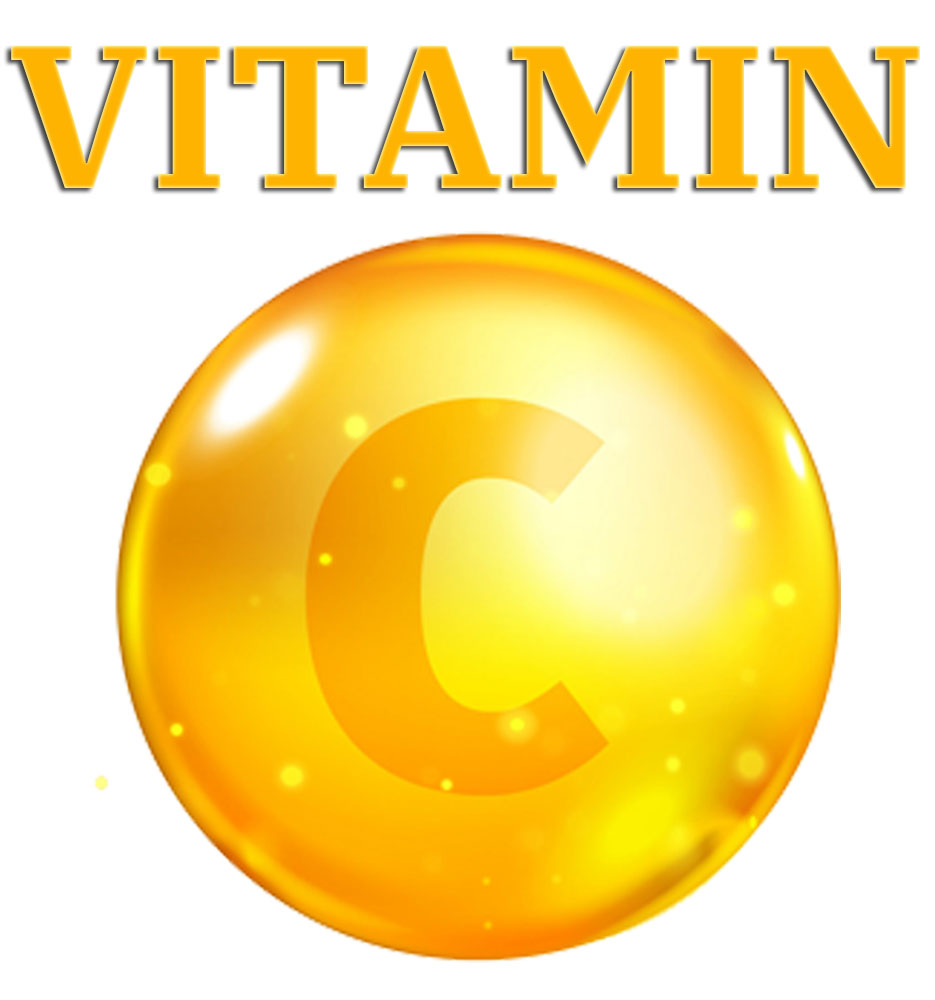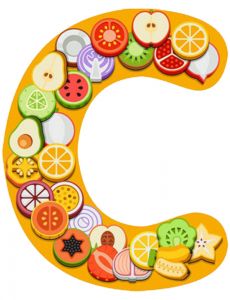
Vitamin C | Acorbic Acid | Ascorbate
Now is not the right time to take chances when it comes to your health. Practicing the necessary steps toward improved immune function is crucial amid the COVID-19 epidemic. In this article, I want to highlight the power of vitamin C and how Chinese doctors use it against the coronavirus. I’ll cover everything you need to know about this essential micronutrient including:
- Vitamin C as a Dietary Supplement
- How Ascorbic Acid Works to Sustain Immune Function
- Research Behind Vitamin C as a Potential Anti-Viral Treatment
- Incorporating Vitamin C in Your Daily Health Routine
Vitamin C as a Dietary Supplement
Vitamin C, also known as L-ascorbic acid or ascorbate, is a dietary component that is integral to human health. Our bodies are incapable of internally producing ascorbate, unlike many mammalian species. So we source it from supplements and naturally occurring ascorbate in certain foods.
Why do we need this micronutrient if our bodies can’t make it? First, it’s an antioxidant that fights off harmful toxins and free radicals that attacks healthy cells. Ascorbate is also proven to aid in the regeneration of other existing antioxidants inside the body, like Vitamin E. It plays a necessary role in many processes behind bodily functions including:
- production of collagen, which in turn, promotes wound healing and is an essential component of cartilage
- production of L-carnitine required for metabolic function
- production of certain neurotransmitters in our nervous system
- reinforcement of the immune system
- absorption of iron present in plant-based food

How Ascorbic Acid Works to Sustain Immune Function
Ascorbic acid is primarily known for its immune-enhancing capabilities. This is mostly attributed to its characteristic as an antioxidant. It serves as protection for our body’s cells against oxidative stress damage caused by the presence of free-radicals.
Ascorbate plays a hand in activating white blood cell production and function. White blood cells such as lymphocytes, phagocytes, and neutrophils play are integral to immune response. Fending off infections is their specialty. These cells are responsible for targeting antigens like parasites, toxins, bacteria, and viruses.
An article from the Linus Pauling Institute’s Micronutrient Information Center highlighted neutrophils as the “primary cell type stimulated by vitamin C.” This type of white blood cell is the immune system’s first response team sent to areas of viral infection. The 2017 study A Role for Neutrophils in Viral Respiratory Disease suggested that neutrophils proactively respond to viral infections. These claims substantiate ascorbic acid as a potential contributor in the immune system’s response against viruses.

Research Behind Vitamin C as a Potential Anti-Viral Treatment
Dr. Robert F. Cathcart presented the concept of using high ascorbate dosage as an infectious disease treatment back in 1994. He argued that the excess electrons present in massive ascorbate doses “neutralize the free radicals (molecules missing electrons) that mediate all inflammations and cause the symptoms and deaths from these infectious diseases.”
Sufficient scientific studies have since been published that support ascorbic acid’s potential anti-viral properties.
- Scientists studied the effect of ascorbic acid on children diagnosed with severe pneumonia. The research published in the Journal of Rawalpindi Medical College found that it shortened the duration of the disease in children under the age of five.
- Authors of the research titled, The Antiviral Properties of Vitamin C pointed out that ascorbate is unlikely to cause a direct virucidal effect. However, they attributed its antiviral effect to the enhancement of neutrophils, amongst others.
- A study highlighted ascorbic acid as an important element of the immune system’s response against H3N2 influenza. Its authors confirmed that ascorbate intake has the potential to prevent the development of influenza during the early stages of infection.
Vitamin C as a Potential Treatment for COVID-19
Ascorbate exhibits promising potential of robust antiviral activity. This prompted experiments to use it as an treatment against COVID-19. Experts from Zhongnan Hospital of Wuhan University began one of three clinical trials to find out if vitamin C can treat COVID-19 patients. Experts will administer 12g of ascorbic acid twice daily to a treatment control group. This dosage is significantly higher than the daily recommendation of 90mg. Researchers launched the study on February 14, 2020. They are expected to release results before the year ends.
Promising Results from A Separate Study
Dr. Richard Cheng, Chinese Edition Editor of the Orthomolecular Medicine News Service, has been giving updates about the clinical trials in a series of YouTube videos. Dr. Cheng confirmed in his most recent video update — uploaded on March 19, 2020 — that the result of one clinical trial is promising. Here are the key details of Dr. Cheng’s report:
- A group of 50 COVID-19 patients exhibiting moderate to severe symptoms were subjected to heightened vitamin C (VC) treatment under the care of Dr. Enqiang Mao and his team.
- Dr. Mao administered an average of 10g to 20g VC via intravenous drip over the course of eight to ten hours. Those with mild symptoms received 10g while severe cases required 20g for treatment.
- One particular patient in critical condition prompted Dr. Mao to administer 50mg of VC. The patient’s healing was observed in real-time.
- All patients from the heightened VC treatment group were successfully treated and discharged from hospitalization.
- Dr. Mao and his team observed that the conditions of the patients significantly improved with heightened vitamin C treatment. Initial results of their trial found that the treatment hastened recovery for patients by three to five days compared to regular patients.
- Findings are still subject to further analysis.
Dr. Mao is the co-author of the Shanghai Expert Panel Consensus for the Treatment of Covid-19 Infection.
Incorporating Vitamin C in Your Daily Health Routine
The immune system plays a crucial role in our body’s resistance to viruses. With the impending threat of COVID-19, this could be the difference between life and death. Getting your daily dose of ascorbic acid is the easiest and most accessible way to keep yourself out of harm’s way.
Food as a Source of Vitamin C
Receive your daily dose (200–300 mg per day) of ascorbic acid by eating fruits and vegetables. This is the most ideal and natural way. Additionally, these are rich in fiber and other nutrients. Here’s a list you can check off your grocery list the next time you stock up your fridge or pantry:
Ascorbate-rich Produce:
- Citrus fruits
- Kiwis
- Strawberries
- Cantaloupe
- Red and green bell peppers
- Broccoli
- Tomatoes
- Potatoes
- Cabbage
- Spinach
- Turnip
- Brussels sprouts

Ascorbate in Dietary Supplements
Ascorbic acid is available in the form of supplements such as pills, powders, and gummies. These are widely accessible and a great alternative to naturally occurring ascorbate in food. These supplements come in variations such as calcium ascorbate, sodium ascorbate, and other mineral ascorbates.
See the chart below for the recommended dosage of Vitamin C from the National Institutes of Health:
| Age | Male | Female | Pregnancy | Lactation |
| 0–12 months | Not possible to establish* | Not possible to establish* | ||
| 1–3 years | 400 mg | 400 mg | ||
| 4–8 years | 650 mg | 650 mg | ||
| 9–13 years | 1,200 mg | 1,200 mg | ||
| 14–18 years | 1,800 mg | 1,800 mg | 1,800 mg | 1,800 mg |
| 19+ years | 2,000 mg | 2,000 mg | 2,000 mg | 2,000 mg |
Looking to boost your immunity? We can lend a hand.
Make a conscious effort to defend yourself and your loved ones against life-threatening diseases, including COVID-19. To learn more about the practical and effective immunity-boosting methods you can take, visit our homepage at BoostYourImmuneSystem.org.




